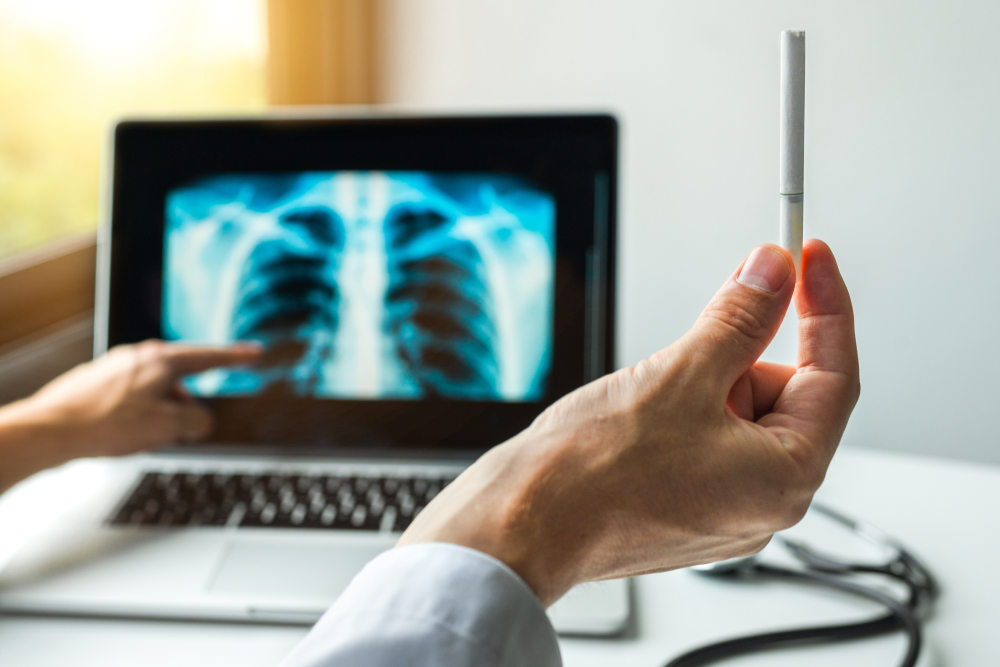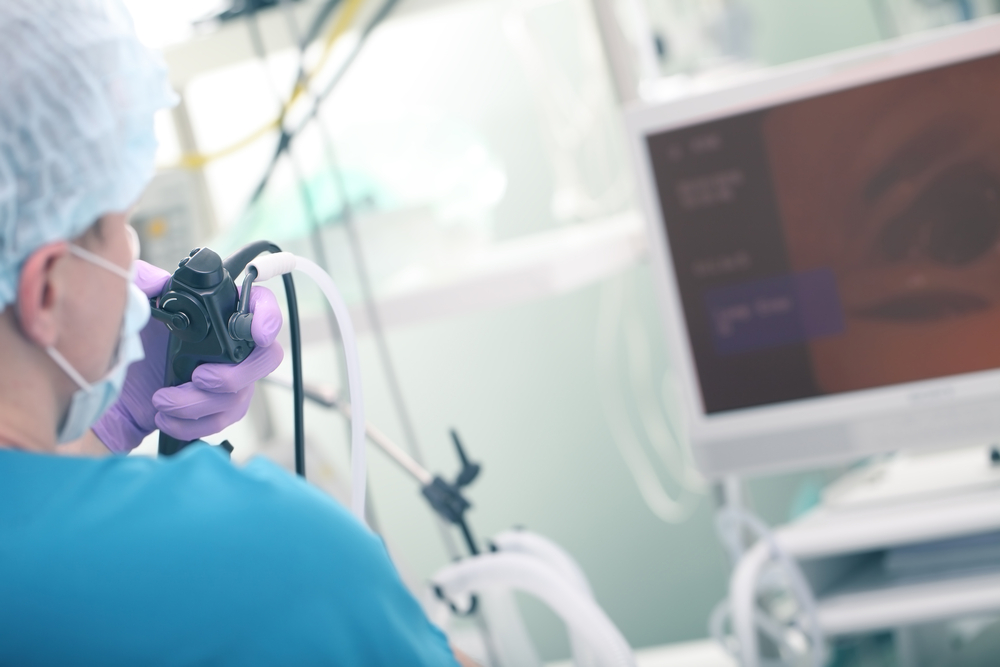- Regular smoking combined with anesthesia can be life-threatening.
- Smoking after surgery may negatively impact healing and leave you with scars.
- Your health begins to improve just hours after you’ve smoked your last cigarette.
It’s no secret that smoking is bad for you, but smoking prior to surgery can be deadly.
In fact, many surgeons refuse to operate on smokers or on those who refuse to stop even temporarily, given the associated risks. Some surgeons go so far as to require that patients take urine tests to prove that they have stopped, whereas others simply ask that smokers stop smoking for a certain amount of time prior to their procedure.
Not every smoker has the chance to cut back before a surgical procedure, but if you’re looking to get cosmetic surgery, then you have an opportunity to cleanse your system before going under the knife.
In this article, we explore the dangers of smoking before and after surgical procedures, as well as the short and long term benefits of stopping as the date of your surgery approaches.
We spoke with three plastic surgeons who’ve frequently worked with smokers so that we could better understand the effect of cigarettes on surgery and the best time to call it quits.
The dangers of smoking before and after surgery
A 2013 study in JAMA Surgery examined 607,558 patients, all of whom were undergoing major surgery. Of those patients, roughly 125,000 were current smokers, 78,000 were former smokers who were smoke-free for at least a year at the time of the study, and 403,000 were non-smokers.
The researchers looked closely at mortality rates among the patients as well as medical issues pertaining to the heart and lungs. They concluded that current smokers were 17% more likely than were former smokers to die as a result of surgery.
Moreover, current smokers were 65% more likely than were former smokers to experience heart problems and 43% more likely to experience lung problems.
It’s clear that smoking poses a serious health risk, but how exactly does it affect surgical outcomes? What do cigarettes do to your body that could lead to life-threatening complications?
Anesthesia
Practically everyone knows that smoking affects the performance of the lungs. Smoking paralyzes cilia, the small hairs inside the lungs that are responsible for catching and removing toxins. As a result, airways become inflamed and coated in mucus, meaning that smokers’ lungs have to work harder than they normally should.
This may be somewhat manageable in day-to-day life, but it’s outright dangerous when combined with general anesthesia — there is an increased risk that the patient will stop breathing altogether. To combat this, anesthesiologists sometimes have to use bronchodilators, which are medications that open the airways to make breathing easier.
Surgical complications
Smoking also does a number on your heart. According to Dr. Alex Kim, a Beverly Hills plastic surgeon, “Smoking can lead to scarring of small blood vessels,” a condition that limits blood flow.
The chemicals in cigarette smoke damage the blood vessels, which in turn results in plaque build-up and narrow arteries. As a consequence, the heart has to pump harder to push blood through, causing high blood pressure (hypertension) and an elevated heart rate.
What does this mean for anesthesia? Under any circumstances, general anesthesia slows your circulation. Combine this with hypertension and your body may not get the oxygen it needs, leading to a variety of surgical complications.
Smokers are also more prone to postoperative heart attacks or strokes, and the aforementioned damage to the blood vessels also increases the risk of post-surgical blood clots.
Weakened immune system
Smokers have weakened immune systems. This can typically manifest as an inability to shake simple colds and flus. But when it comes to surgery, the consequences are much more dire.
Tobacco suppresses immune responses, leading to poor wound healing and an increased risk of infection. Infections can result in severe scarring and may even cause surgeries to be completely unsuccessful, as when breast implants need to be removed.
Dr. Eugene Elliott with MemorialCare Orange Coast Medical Center in Fountain Valley, California, speaks to the seriousness of smoking before and after surgery: “Smokers have a greater risk of chronic obstructive pulmonary disease, asthma, bronchitis, and pneumonia, all of which increase overall surgical morbidity.”
In other words, smokers are more prone to several illnesses during recovery, some of which, like pneumonia, can be life-threatening.
Interference with wound healing
A weakened immune system is not the only threat to proper healing. According to Dr. Csaba Magassy of Plastic Surgery Associates, P.C. in Virginia, “It’s a well known fact that people that smoke just don’t heal as well as people that don’t smoke.”
Carbon monoxide from cigarette smoke gets into body tissues, robbing those tissues of oxygen and making it more difficult for the body to repair itself. Poor circulation, as described by Dr. Kim above, can also interfere with the increased blood flow necessary for proper healing.
Dr. Elliott agrees, noting that this lack of oxygen “could contribute to necrosis of tissue leading to a variety of adverse results,” including post-surgical infection.
When to stop smoking before surgery
Thankfully, there’s good news for smokers looking to get cosmetic surgery. Quitting can offset negative effects and improve surgical outcomes.
Let’s take a look at that 2013 study again. When comparing former smokers to non-smokers, researchers concluded that there was no appreciable difference in risk levels other than smoking. Therefore, quitting before surgery could help reduce or even negate smoking-related risks.
But do you need to quit a whole year before getting your procedure? How long is long enough to go without cigarettes when preparing for surgery?
Many surgeons recommend that patients stop smoking for 4–6 weeks before surgery and not start again, if at all, until 4–6 weeks after surgery. Your surgeon may have more or less stringent recommendations.
Days before surgery
Dr. Magassy tells his patients they can stop smoking “within a day or two before surgery.” He notes that this should be enough time to offset the surgical risks associated with smoking.
Some sources agree that a couple of days is enough to offset certain risks and is certainly better than nothing. In fact, even just an hour without a cigarette is enough to reduce your heart rate, while twelve hours smoke-free will reduce the overall level of carbon monoxide in your body.
Weeks before surgery
Dr. Kim prefers that patients stop smoking three weeks before surgery. “When one quits smoking,” he notes, “the damage on the body reverses slowly, so it takes a long time for the body’s blood vessels to return to their normal state.”
A few weeks to a month could result in improved lung function, which aids in circulation, and 3–6 weeks without cigarettes is more than likely to bring about an overall improved immune system.
Months before surgery
Dr. Elliott has the longest timeline. “I require smokers to stop 2–3 months prior to surgery,” he says. He takes this rule seriously too, requiring that patient get nicotine blood level tests if he suspects they’ve continued smoking.
This may seem like a long time to go without a cigarette, but Dr. Elliott’s approach is justified. The first few months after quitting can make a huge difference in circulation as well as a significantly decreased risk of heart attack.
Although the surgeons we talked to differ on where they draw the line for smokers who want plastic surgery, they all agree that the sooner you quit the better. After all, every body is different, and you want to give yours as much time as possible to heal itself.
Quitting before surgery can change your life
Quitting before surgery doesn’t have to be about just improving surgical outcomes. Your upcoming cosmetic surgery could be the motivation you need to quit for good.
A 2017 study in Plastic and Reconstructive Surgery examined the correlation between quitting smoking before cosmetic surgery and staying smoke free in the future. They concluded that it’s possible cosmetic surgery was just the right motivation for a major lifestyle change.
The researchers looked at 85 patients who were also smokers. These patients were required to stop two weeks before their surgeries. Five years after their procedures, the same patients were surveyed. Of those who responded, most said they’d reduced their cigarette intake, and 40% said they no longer smoked at all.
Of course, the lack of a control group and the admission by some participants that they ignored their surgeon’s directions to stop smoking does call some of the results into question. However, there’s still an important lesson to be learned: 70% of the respondents noted that discussing cigarettes with their surgeon influenced their decision to officially quit or cut back
Cosmetic surgery can potentially be what motivates you to finally make this difficult and life-changing decision.
How to quit and what to expect
It’s all well and good for us to talk about the importance of quitting, but some things are easier said than done. Luckily, there are several strategies and resources available for people who want to finally do away with cigarettes.
Set a firm quit date
In other words, no bargaining or empty promises. There’s no such thing as “just one more cigarette.” You either quit or you don’t. The more you negotiate with yourself, the harder it will be to actually quit.
If you’re getting cosmetic surgery, use your surgery date to inform your quit date.
Get support
This could mean letting your family and friends know that you’re quitting so that they can help support your smoke-free lifestyle. It could also mean seeking professional counseling to help you fight cravings, curb the desire to overeat, and avoid the other unhealthy habits associated with quitting.
Smoking is addictive, and you will likely experience some significant side effects, depending on the severity of your habit. Don’t do this alone. Let your primary care physician and cosmetic surgeon know what you’re planning to do. They may have resources and tips that will help.
Explore medications
Among other things, medical professionals may be able to help you with assistive medications, like ibuprofen, and nicotine replacement therapy, like a nicotine patch.
These tools can make quitting easier by soothing side effects.
Educate yourself
Know what you’re in for before it begins. Nicotine withdrawal is not just about craving more cigarettes. It can make you feel legitimately ill, which may be alarming. The first ten days after that last cigarette are the worst. Expect any or all of the following:
- Coughing
- Muscle aches and pains
- Sweating
- Constipation
- Nausea
- Dizziness
- Anxiety
- Sleeplessness
As unpleasant as all of that sounds, know that all of these symptoms will pass in time. You just need to stay determined. The more you relapse and sneak cigarettes, the more you prolong this painful period.
Of course, there is also a psychological component to smoking. Some people turn to cigarettes as a form of stress relief or to offset other bad habits, like excessive snacking. Some people can experience cravings months or even years after they’ve quit. Thankfully, the more time you put between yourself and your last cigarette, the easier it gets.
If, on the other hand, you’re not interested in quitting for good, hopefully you’ve been convinced of the importance of quitting in the meantime. The health risks associated with smoking and surgery are immediate and serious.
Besides that, cosmetic surgery is expensive in its own right. Why spend all that money only to put the success of the surgery, and your health, in peril?
» Ready to quit smoking and schedule that surgery? Meet our Medical Review team and discuss the next steps.









